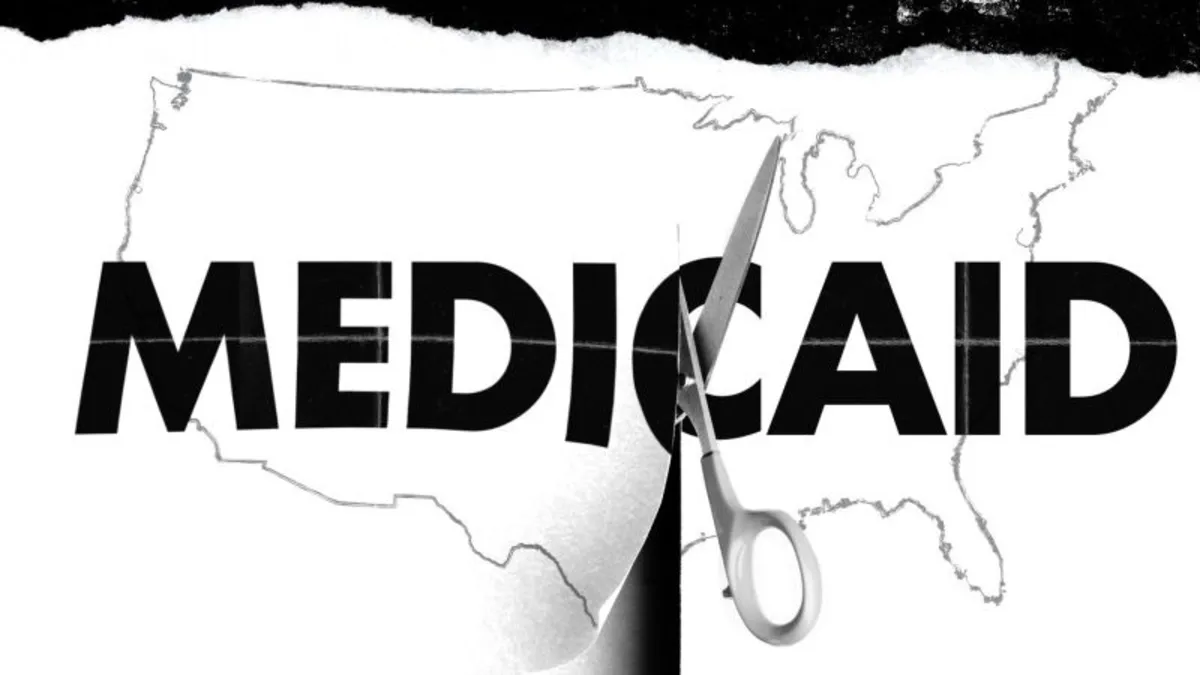
In a move that could reshape the landscape of social safety net programs, House Republicans are advocating for nearly $1 trillion in cuts to two cornerstone initiatives: Medicaid and food stamps. This sweeping legislative package aligns with President Donald Trump’s agenda, aiming to reduce federal support significantly. If passed, millions of Americans may lose access to these crucial benefits, which could lead to a historic pullback in federal assistance.
Despite President Trump's repeated commitments to safeguard Medicaid, GOP lawmakers assert that their proposals primarily target adults deemed capable of employment. However, experts warn that the cuts will likely affect a broader demographic, including vulnerable groups such as children, people with disabilities, and senior citizens. Currently, over 71 million people are enrolled in Medicaid, while approximately 42 million Americans rely on food stamps, highlighting the widespread reliance on these programs.
The financial implications of the proposed Medicaid cuts extend beyond individuals to hospitals and healthcare providers. A reduction of nearly $700 billion in federal support over the next decade could lead hospitals to increase rates for those with employer-based insurance or even close their doors. Moreover, states will be compelled to take on more financial responsibility, potentially leading to tough choices, such as cutting enrollment, reducing benefits, or raising taxes.
A significant aspect of the GOP package is the introduction of work requirements for Medicaid recipients. For the first time in the program's 60-year history, individuals aged 19 to 64 would need to work at least 80 hours per month to maintain their benefits. Exemptions would apply to certain groups, including parents, pregnant women, and individuals with disabilities. However, critics argue that many individuals, including those already employed or qualifying for exemptions, might lose their coverage due to bureaucratic challenges in reporting their work hours.
Michael Karpman, a principal research associate at the Urban Institute, notes that the new work reporting system could inadvertently disqualify millions who are genuinely unable to work due to health conditions. Hospitals and nursing homes could also face financial strains as the legislation limits states’ ability to levy taxes on health care providers, leading to reduced services or closures, particularly in rural and low-income areas.
The Congressional Budget Office (CBO) projects that over 10 million people could lose Medicaid coverage within a decade due to these proposed changes. This projection includes an expected increase in the uninsured population, potentially reaching 7.6 million Americans by 2034. Furthermore, the GOP package delays the implementation of a Biden administration rule designed to streamline Medicaid eligibility, risking coverage loss for an estimated 2.3 million people, including vulnerable populations.
Alongside Medicaid, the GOP package seeks to impose stricter requirements on food stamp recipients. The proposed legislation extends work requirements to adults aged 55 to 64 and parents of children aged 7 to 18, potentially jeopardizing assistance for 11 million people, including 4 million children. Additionally, states would be required to shoulder a portion of the benefit costs for the first time, which could further complicate their ability to administer these programs.
Ty Jones Cox of the Center on Budget and Policy Priorities emphasizes that the new requirements could lead to significant reductions in nutrition assistance, as states may feel pressured to limit enrollment or exit the program altogether. Grocery store owners express concern that cuts to the Supplemental Nutrition Assistance Program (SNAP), commonly known as food stamps, could negatively impact local economies, as these benefits directly contribute to job creation and economic stability.
The proposed cuts to Medicaid and food stamps present a pivotal shift in how the United States supports its most vulnerable populations. As the legislation moves through Congress, the potential for widespread coverage losses raises critical questions about the future of these essential programs. With millions of Americans relying on Medicaid and food stamps for their basic needs, the stakes are high as lawmakers navigate this contentious debate.